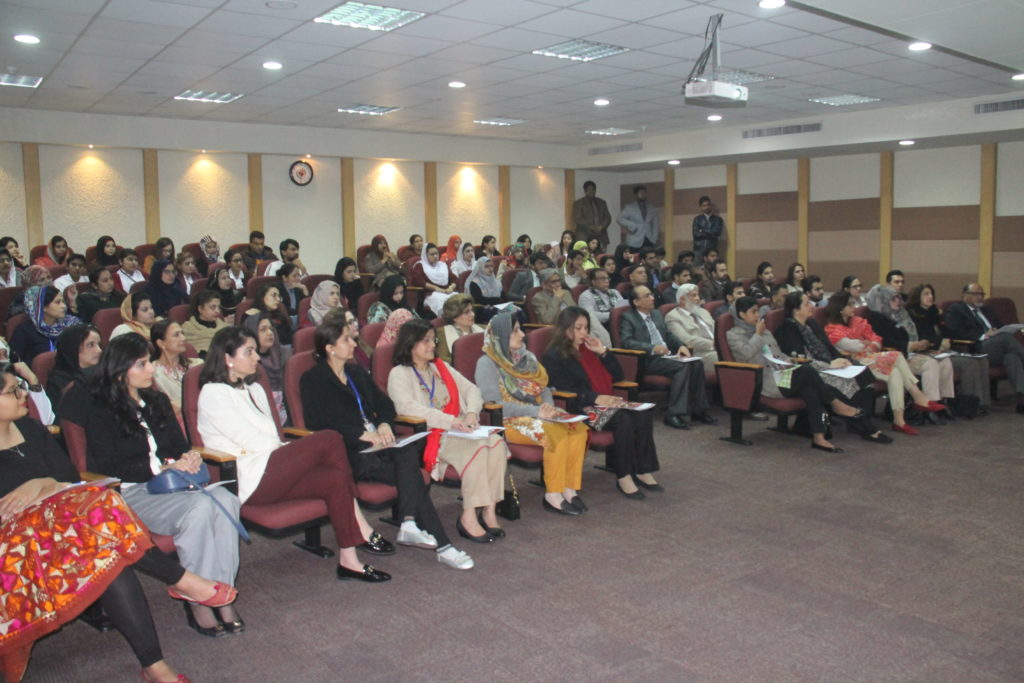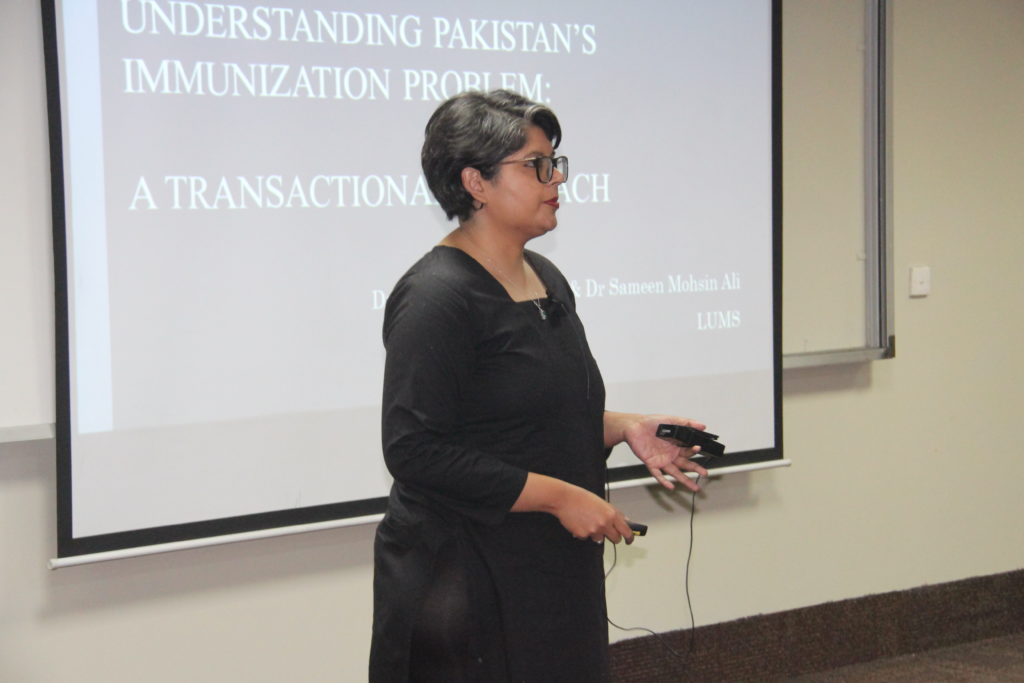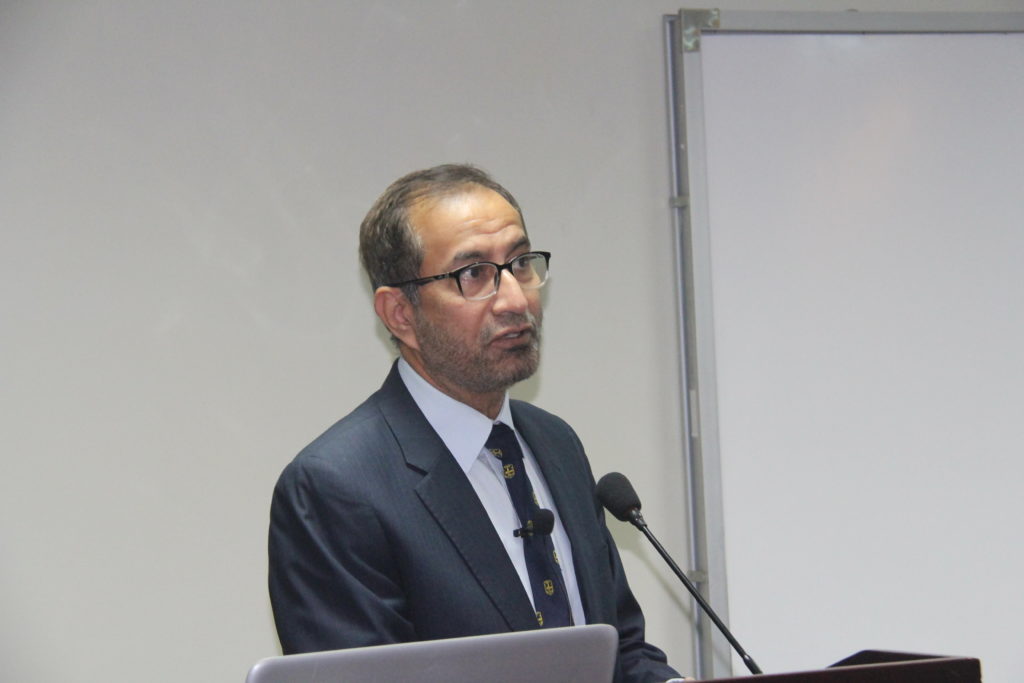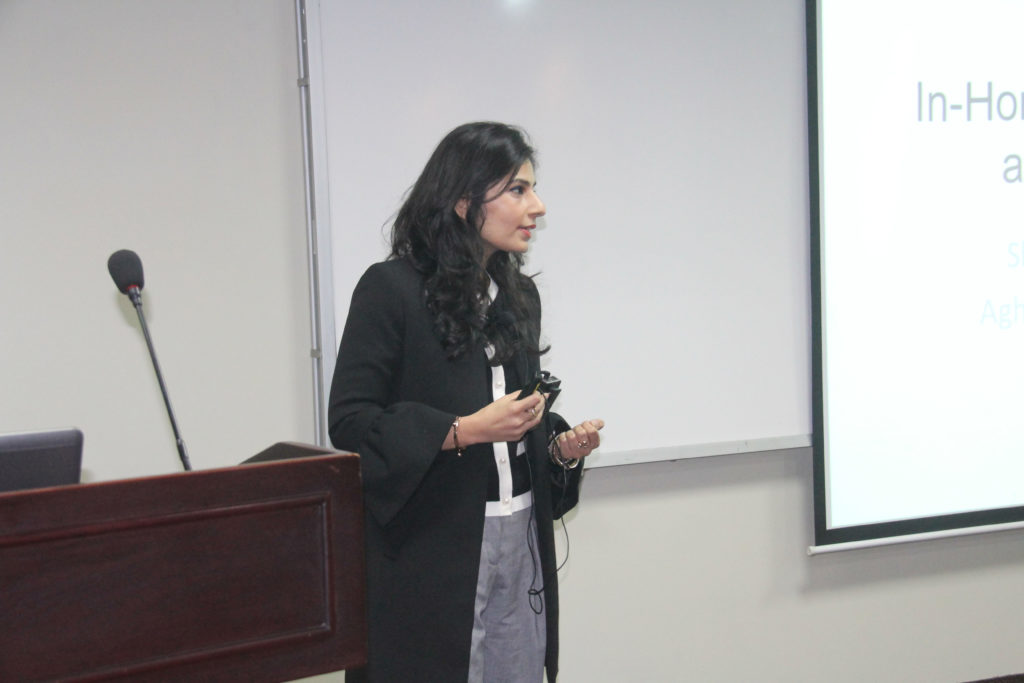The Shahid Hussain Foundation had sponsored a grant of PKR 4.0 million last year for funding local research in Public Health and in January this year, the participants presented their research progress in the Seminar on Public Health Research, organized by the Shalamar Medical and Dental College. The Seminar was attended by notable members of the medical and research community, and saw multi-disciplinary teams present their research work.

Participants at the Public Health Research Seminar
The research works being presented were as follows:
1. “Understanding Pakistan’s Immunization Problem: A Transactional Approach” by:
Dr. Sameen Mohsin Ali at LUMS
Dr. Samia Altaf
Dr. Sameen and Dr. Samia’s work is targeted to look into the demand and supply side issues in the policy for providing vaccinations in Punjab region. They hypothesize that the government’s policy on vaccinations lacks understanding of local context and how people access health services.

Dr. Sameen Mohsin suggests that the Government generalizes certain aspects in policy making
2. “Investigation of hyperglycemia mediated inflammation on risk of cardiovascular disease in type 2-diabetes,” a collaborative research project by:
Dr. Shaper Mirza from Dept. of Biology, LUMS
Dr. Bilal bin Younas from the Diabetic Center, SIHS
The collaboration between Dr. Bilal and Dr. Shaper is part of a ground-breaking research that aims to:
- equip Diagnia, a smartphone application developed by the Biomedical Informatics Research Laboratory (BIRL) at the Lahore University of Management Sciences (LUMS), with real-world data to assist in clinical investigation of patients suffering from diabetes by precisely predicting the probability of the disease and ;
- study the effect of Hyperglycemia in upregulation of NFKB in Diabetics and non-Diabetics.

Dr. Bilal Bin Yousaf presenting his research plan for Diagnia
For the second part, the major focus of this research is to study and understand the ultimate impact of persistently higher glucose levels in Diabetics. This would be done by examining a particular NFKB cellular signaling pathway to look for any significant differences as a result of the absence or presence of elevated glucose levels. This pathway is responsible for mediating certain immune responses, any significant changes in which can further have deleterious effects on the human body such as diabetic complications, metabolic disorders and insulin resistance.
3. “A Randomized Controlled Trial to Assess Effectiveness of the In-Home Growth Monitoring Tool (GroMoTo) in Addressing Childhood Stunting”, a collaborative research project by:
Dr. Agha Akram Ali at the Dept. of Economics, LUMS
Dr. Hina Khalid at ITU
The study is a collaboration between multiple local and international leading researchers, aiming to see whether a slight intervention in growth monitoring of infants can help in preventing childhood stunting, which currently stands at 38% in Pakistan.
The research model includes dividing the base group from Karachi Pakistan into three groups and each being studied with the following factors over a period of time:
- Standard nutrition counseling by Community Health Worker.
- Counseling + GroMoTo, which would be a chart to visually note height of the child over time, thus making it easier to understand and compare.
- Counseling + GroMoTo + (labeled) Cash transfer as incentive and financial support.

Dr. Hina Khalid presenting her work on In-Home Growth Monitoring Tools
4. “Prevention of Coronary Artery Diseases in Urban Slums of Lahore through Advocacy and Behavioral Change”, led by:
Dr. Tahseen Haider Kazmi from the Dept. of Community Medicince, SMDC, SIHS
Dr. Tahseen’s work is a plan to understand how general advocacy and counseling towards changing general habits and practices can reduce the risks of heart related diseases in a community. As a pilot, the research is targeted towards a small section of Lahore, Union Council 120 that has a population of 25,000. The research not only relies on a time-bound study but also a sustainability plan to ensure that the effectiveness of the program can be studied over a longer period.
